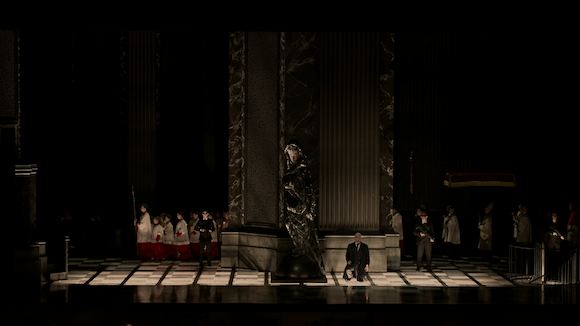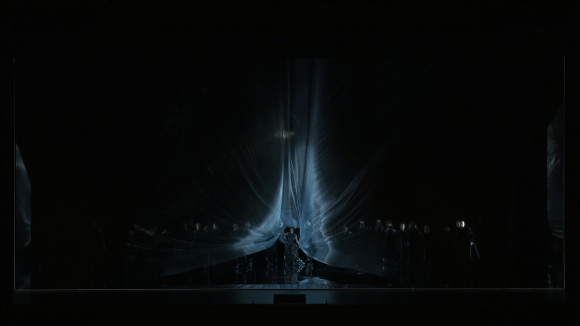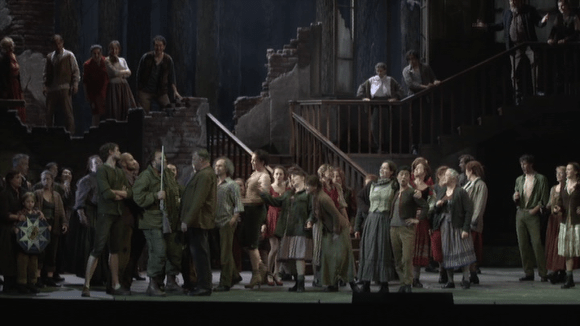It’s pretty difficult to judge whether or not a high concept production of Wagner’s Ring cycle is going to work or not just from Das Rheingold but I thought Dmitri Tcherniakov’s production for Staatsoper unter den Linden recorded in 2022 was pretty promising. His world is a large research complex designated ESCHE for reasons that aren’t clear. The time period seems to be 1970s or thereabouts. The research is essentially psychological and the characters are variously executives, scientists and experimental subjects.
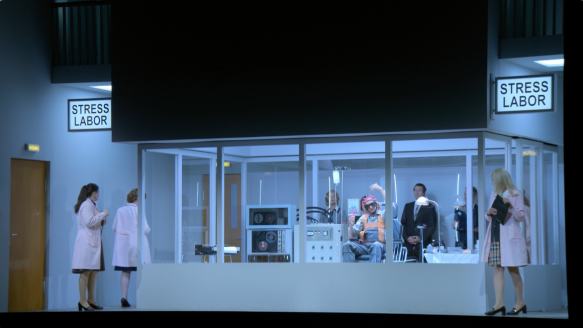

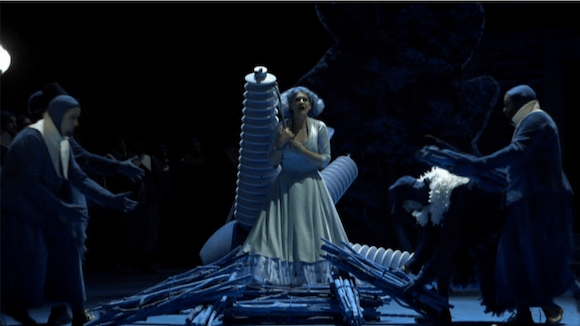
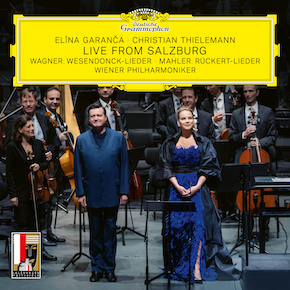 Live from Salzburg is a new CD featuring music recorded live at Salzburg during the pandemic. The performers are Elīna Garanča, The Vienna Philharmonic and Christian Thielemann. There are two sets of songs; Wagner’s Wesendonck Lieder (recorded in 2020) and Mahler’s Rückert Lieder (recorded in 2021). Both recordings were made during live performances in the Großesfestspielhaus.
Live from Salzburg is a new CD featuring music recorded live at Salzburg during the pandemic. The performers are Elīna Garanča, The Vienna Philharmonic and Christian Thielemann. There are two sets of songs; Wagner’s Wesendonck Lieder (recorded in 2020) and Mahler’s Rückert Lieder (recorded in 2021). Both recordings were made during live performances in the Großesfestspielhaus.